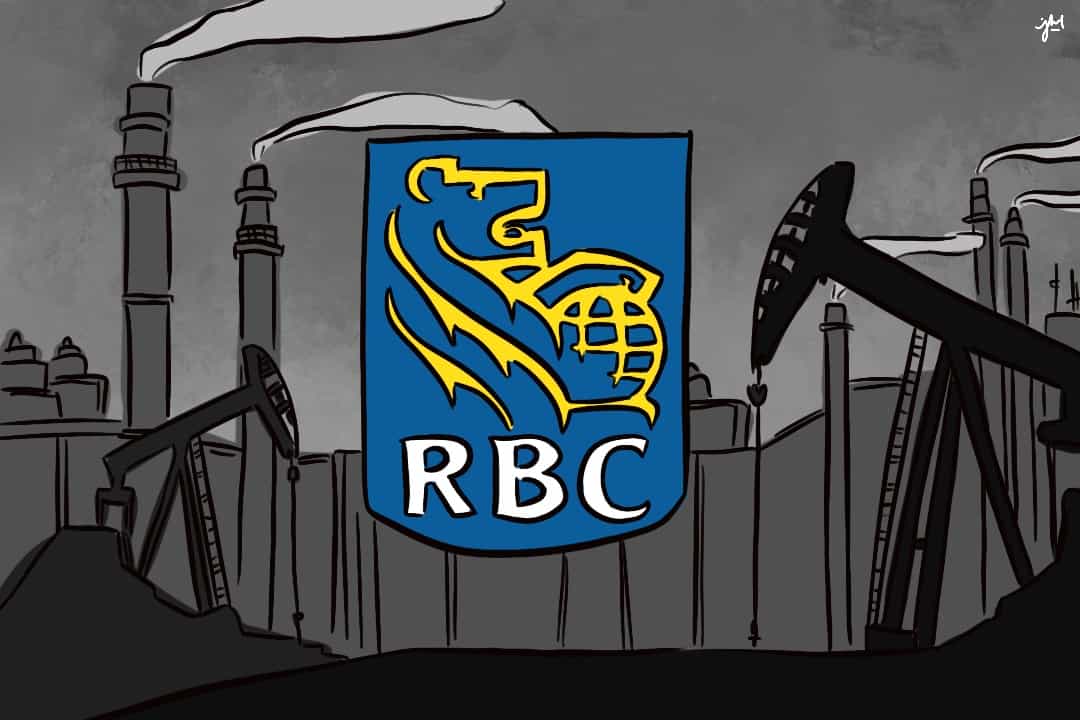Earlier this year, during a University of Toronto Entrepreneurship (UTE) panel to launch the Royal Bank of Canada (RBC) Innovation Challenge, students expressed their outrage of the partnership between UTE and RBC. Students were crying out “This is greenwashing” and carrying banners that read “Fund Futures not Pipelines.”
With University of Toronto Asset Management Corporation’s move to divest from fossil fuels last year, and U of T more recently meeting its fossil fuel divestment commitment, chatter about divestment has been widespread across campus. Divestment involves eliminating investments or funds in companies. More specifically, fossil fuel divestment involves terminating association with companies that invest in fossil fuels.
By divesting from companies that are involved in the fossil fuel industry, we deprive these companies of their primary goal — money. Divestment from fossil fuel by the university is a break from environmental degradation and a rebuttal against the climate crisis. It represents a way forward and an opportunity to build a more sustainable future.
RBC’s role in the problem
Across Canadian universities, RBC’s On Campus program has become a resource for those seeking budgeting advice and career-focused guidance. Created with students in mind, the On Campus program is advertised as a supportive space for students to learn about money management. RBC promotes the On Campus program as an opportunity for networking and career and professional development. However, RBC’s actions behind the scenes are destroying our most fundamental aspect of community — the environment.
RBC is Canada’s largest bank and the country’s biggest financier of fossil fuels. In 2019, the company was the global leader in financing tar sands — large deposits of crude oil that are found around the world. Over the last four years, the bank has contributed over $140 billion to fossil fuels.
Despite consistent scientific evidence on the effects of fossil fuels on the climate, RBC has yet to change its practices. Rather than taking steps to align its actions with the goals of global legislation, RBC continues to invest billions in fossil fuels.
RBC’s dedication to fossil fuels is inconsistent with the values the company claims to uphold. Publicly, the bank identifies the climate crisis as a critical problem, yet, in 2021, continued to increase its funding of tar sands by 51 per cent. In 2021, RBC President and CEO Dave McKay stated that, “Climate change is one of the most pressing issues of our times,” yet, the company continues to be involved in the world’s most environmentally destructive industry.
Supporting RBC is supporting climate change. Banking with RBC is investing in fossil fuels. The fossil fuel industry cannot survive without the support from corporations like RBC, and demanding banks divest compromises the fossil fuel industry’s ability to survive.
U of T can make an impact
Despite committing to divest from fossil fuel investments, allowing RBC to offer their services on campus shows that U of T’s work is not finished.
This is where the problem starts; encouraging students to bank with RBC is encouraging them to support a company that depends on environmental degradation for success. By allowing RBC On Campus to take place at U of T, the university is not fully dissociating from the fossil fuel industry and letting the actions of the country’s largest financier of fossil fuels be swept under the rug. Fossil fuel funders don’t belong at U of T, and severing partnerships with banks involved in the fossil fuel industry represents dedication both to the climate and to our futures.
Partnering with universities makes RBC seem like a champion of the younger generation. But this is a façade that obscures its true actions — RBC cannot claim to champion youth while simultaneously destroying their future. Fossil fuels are systematically eroding the biosphere’s capacity to support future generations, and to let its financiers onto our campus is to turn a blind eye to the realities of their environmental impact.
It starts at U of T
RBC’s actions behind the scenes cannot go unnoticed. As part of the generation that can make a difference, we must pledge to stop banking on fossil fuels.
Commercial banks rely on young people. If thousands refuse to associate with fossil fuel financiers, the banks will have no choice but to divest. If our banks fail to support our futures, there’s no reason we — or our university — should support them.
Fossil fuels have a hold on our society, but with collective action and widespread divestment, we can loosen its chains. We must stop associating with banks that pour money into fossil fuels. Divestment is an opportunity to sever all ties to the tyrannical industry of nonrenewable resources, and we should take advantage of it.
It starts at U of T — by calling for fossil fuel funders to be removed from our campus and taking a stand for our environment, our lives, and our futures.
Chloe MacVicar is a third-year student at University College, studying environmental studies, political science, and writing. She is a climate columnist for The Varsity’s comment section.


